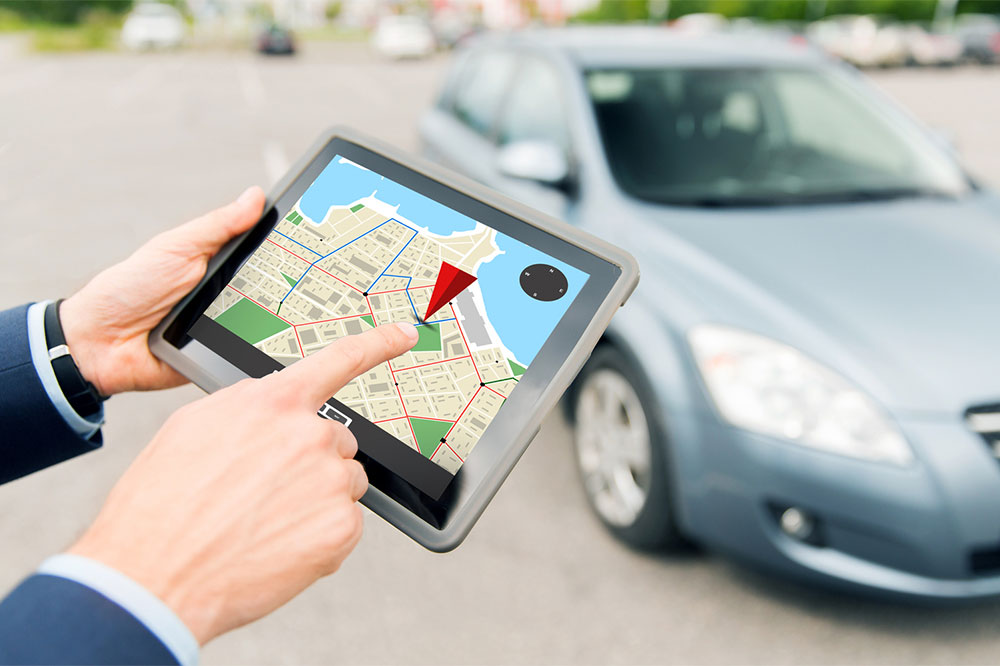Benefits of Using GPS Fleet Tracking Systems
GPS systems, or Global Positioning Satellite systems, have changed the face of vehicular navigation with several technological advancements. These systems allow you to monitor every car in your fleet, improving operational efficiency. GPS systems also come with several other benefits like system automation and alerts, making them a must-have installation in cars. Before picking from the best, take a quick look at the working and benefits of GPS fleet tracking devices.
How do fleet GPS tracking devices work?
GPS fleet tracking devices work together with other GPS systems preinstalled in the car. They track the movement of the vehicle in real-time through satellites.

Like general GPS programs on mobile phones, GPS trackers on cars send out signals about their location. Remote systems receive these signals to locate the vehicle’s position accurately. Besides providing location information, GPS tracking devices can chalk out the fastest and safest routes and directions to the assigned destinations to save time.
Benefits of fleet GPS tracking devices
These days, GPS fleet tracking devices have become highly advanced. Besides their basic use for navigation, some monitor the condition of the vehicles, give alerts about fuel usage, record the mileage, and notify the driver in times of equipment and maintenance-related issues.
Accountability and safety
Vehicle GPS and fleet tracking systems help ensure accountability and safety by logging everything, including driving habits, unsafe driving, overspeeding, incorrect braking usage, and other driving patterns. They also record idle durations and if the driver has gone off the route. Further, they help in roadside assistance, recording accidents, tracking driver attendance, and have anti-theft services.
Reduced fleet expenses
Your driver’s overall performance will directly affect the cost of running your fleet. GPS tracking helps monitor poor driving habits leading to fuel wastage and increased vehicle maintenance. It also monitors speed limits and whether drivers adhere to the rules. Even when the car is idle, it can use up to a gallon of fuel in an hour. Therefore, tracking systems alert remote operators of excessive idle time. Further, the devices monitor vehicle usage and prevent employees from using vehicles that have not been assigned any tasks or routes.
Reduced overtime
Driving more than required to complete a task is a waste of time, effort, and, most importantly, money. It is a sign of decreasing productivity if a specific delivery or task is not completed within the designated schedule. Tracking systems help solve this problem. They allow you to assess and plan routes, deliveries, and timelines with real-time updates of every vehicle in the fleet to avoid running cars longer than required. You can also organize workloads to compensate for time lost due to unforeseen circumstances like vehicle breakdowns or drivers not showing up.
Digital timekeeping
All GPS fleet tracking systems are digitized. It means you can manage everything online as well as remotely. One of the critical features of these systems is timekeeping. It has a variety of benefits. For instance, it can be pretty tedious to accurately track every employee and their activities while managing a fleet. This is where digital timekeeping takes over with automated tracking to keep count. It helps calculate employee work hours, prevent time theft through tampering, track employee arrival and departure, maintain log sheets, and synchronize with multiple tasks sheets.
Improved operational efficiency
Fuel and vehicle maintenance are the two costs that any fleet will incur, so managing these should be your number one priority. This monumental task is simplified with a great GPS tracking device. They send automatic maintenance reminders by keeping track of which vehicles need maintenance, making it easy for you to cut down on unnecessary expenses. They also ensure the vehicle’s engines are finely tuned, tires properly inflated, and the recommended grade of motor oil used for lubrication. Such prompt alerts about maintenance improve your vehicle’s mileage, reducing fuel costs and improving operational efficiency.
How to choose a GPS tracker for cars?
When choosing a GPS fleet tracking device for your business, ensure the software program has the features that fit your business needs. Most GPS vehicle tracking systems offer many standard features like dashboards with trending metrics, options for communication and navigation, ongoing and effective customer support, and fuel card integration features, among other things.
It is also essential to look for other vital aspects, like ease of use, alert systems, good signal, mobile access, and third-party integration. While the system must not overshoot your budget, choosing a GPS fleet tracking solution solely based on its price is not recommended.

